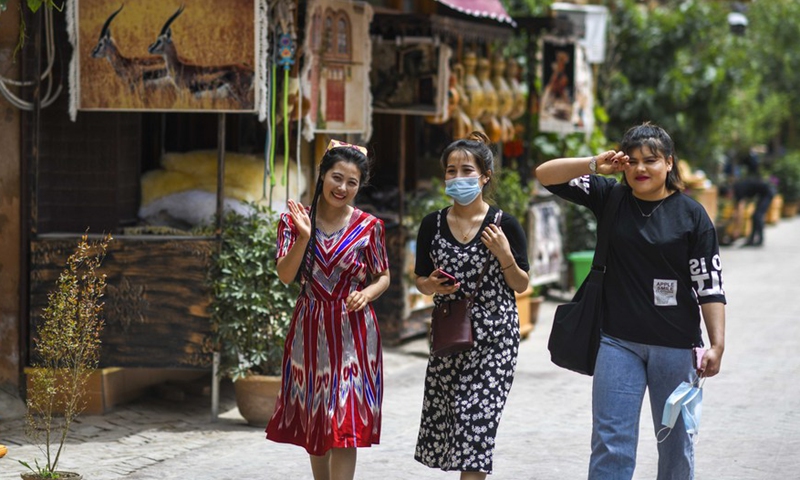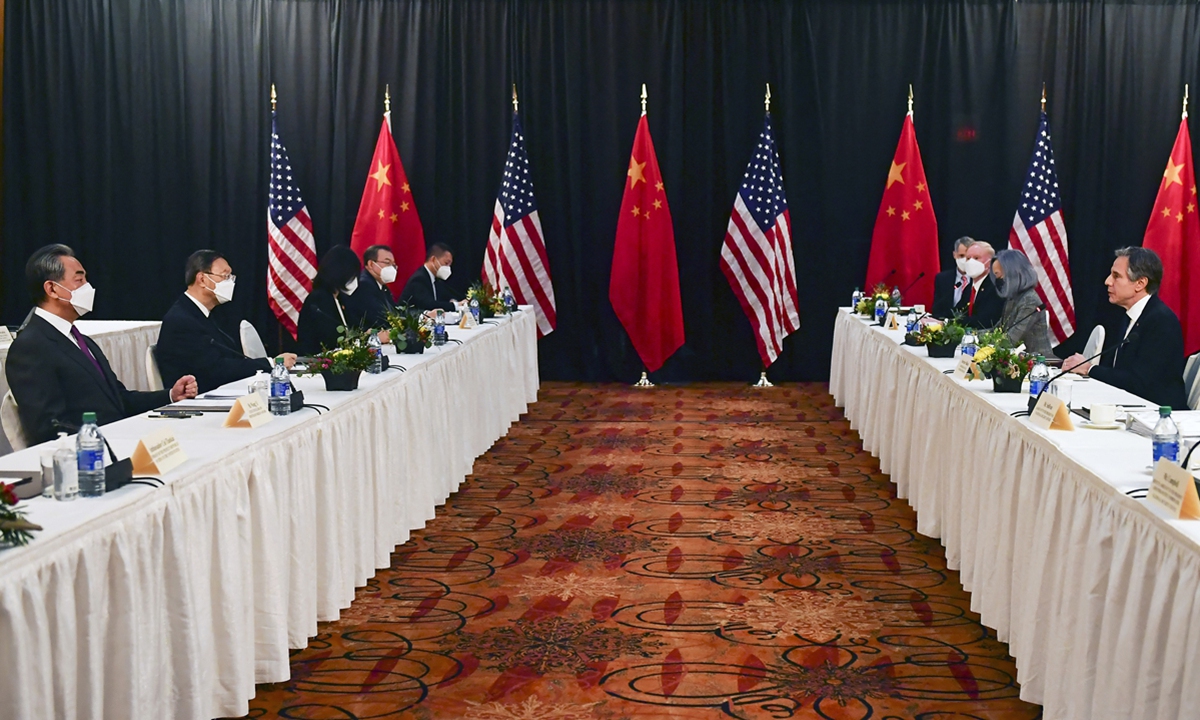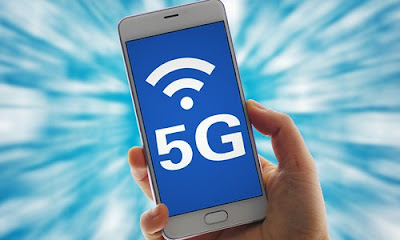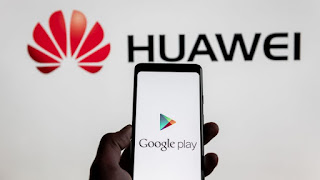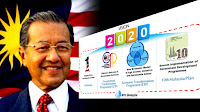US-China talks in Alaska: Beijing threatens "firm actions" against "US interference"
美中高層阿拉斯加會談 觸及香港貿易問題?(原音呈現)|20210319|TVBS新聞|LIVE
Two days of difficult talks were expected to be the best opportunity for the Chinese and US administrations to get to know each other; so far, the US’ aggressiveness and disregard for diplomatic protocol, and rapid and sharp counterattacks by the Chinese delegation, have made the world take notice. Chinese observers said continuing talks despite the intense argument is why this dialogue is so significant.
The US delegation attending the China-US Alaska high-level meeting unjustifiably attacked and accused China's domestic and foreign policies and seriously prolonged its opening remarks, the Chinese delegation said after the meeting's first session.
"This is neither hospitable nor good diplomatic etiquette. China has made a stern response to this," the Chinese delegation said.
The Chinese delegation was invited to Anchorage to have a strategic dialogue with the US side with sincerity and was ready to conduct the dialogue in accordance with the procedures and arrangements agreed upon by the two sides.
The Chinese delegation made the remarks after the first session of China-US talks in Alaska concluded on Thursday local time.
Yang Jiechi, a member of the Political Bureau of the Communist Party of China (CPC) Central Committee and director of the Office of the Central Leading Group for Foreign Affairs, stated China's position at his opening remarks, saying China hopes this dialogue is sincere and honest.
We thought too well of the US; we thought the US would follow the necessary diplomatic protocol… In front of the Chinese side, the US side is not qualified to speak to China from a position of strength, Yang said.
Chinese State Councilor and Foreign Minister Wang Yi said that China-US relations have encountered unprecedented difficulties as China's legitimate rights and interests have been unreasonably suppressed. It harms the interests of the peoples of the two countries as well as world stability and development, Wang said, adding that the situation "should not be continued."
"The old habit of the US hegemonic behavior of willfully interfering in China's internal affairs must be changed," Wang said.
The US launching new sanctions against China just a day before the Chinese delegation's departure to Alaska was not hospitality and only proved its weakness and inability, Wang said, noting that "it will in no way affect China's legitimate position or shake the will of the Chinese people."
At the invitation of the US, top Chinese diplomats and other delegates led by Yang and Wang, the first foreign delegation to visit the US since the inauguration of US President Joe Biden, started "high-level strategic dialogue" with US Secretary of State Antony Blinken and National Security Advisor Jake Sullivan on Thursday in Anchorage, Alaska, one of the coldest places on US soil with a freezing temperature of minus 19 degrees Celsius.
As agreed by both sides, the officials will hold three meetings from Thursday to Friday, local time, media reported.
The opening remarks of the two sides were described by American media as "combative," as China stated firmly its core interests while the US continued to make unwarranted accusations about China's human rights situation and internal affairs about Hong Kong, Xinjiang and Taiwan.
Chinese analysts said that both the Chinese and US delegations were under huge pressure, and China's firm stance was setting the tone for the high-level dialogue.
Lü Xiang, a research fellow on US studies at the Chinese Academy of Social Sciences in Beijing, told the Global Times on Friday that Chinese delegates' opening remarks clearly expressed China's resolute position on its core interests, which was telling the US and the world that no matter how long the dialogue will last, China's position will not change.
After the Chinese delegates' opening remarks, Blinken, who had finished his opening remarks before Yang, held journalists in the room for his further remarks, according to Reuters.
According to the agreed protocol, the opening remarks of the two sides were to be eight minutes altogether, but afterward, Blinken held journalists to give further US remarks and then immediately requested them to leave.
Chinese delegates asked journalists to stay to witness China's further response, according to a reporter with Phoenix TV. Opening remarks ended up lasting about 90 minutes.
Yang Xiyu, a former Chinese diplomat and senior research fellow at the China Institute of International Studies in Beijing, told the Global Times that Blinken made extra remarks out of concerns that he would be lashed out fiercely by his domestic audiences if he did not.
Whether he made a further response or not will not affect the dialogue, but he needed it considering domestic pressure and domestic political interest, Yang Xiyu said.
The "combative" opening remarks, which took place amid the increasingly complicated conflicts of two countries, were rather as expected, but the dialogue in the following sessions will not only discuss what the two sides argued about but will also explore the areas that the two sides could cooperate in to stabilize bilateral relations, Yang Xiyu said.
In his extended remarks, Blinken said US allies also raised concerns about China, with Chinese analysts saying this did not show the US' sincerity, as the issues between China and the US should be dealt with by the two parties, instead of forming cliques or pressuring allies.
Yang Xiyu said that China and the US made their opening remarks based on different standards and international rules, and China's were based on peaceful coexistence and noninterference in internal affairs, while the US' were based on putting human rights over sovereignty.
Thus, the two countries should set up a new rule-based communication means rather than the rules established during the colonial period to make future talks effective, He said.
For example, Blinken accused China of espionage, but the US failed to offer any solid evidence. The two sides should also set up rules on cybersecurity issues, including actions and criteria recognized by both on investigating evidence, Yang Xiyu said.
Related:
Xinjiang residents to sue BBC over fake news on region
Xinjiang people to sue BBC over biased reports causing ec
Alaska talks to be remembered in history as a landmark
China-US talks must start from principle of equality
China and the US are two major world powers. No matter how many disputes they have, the two countries should not impulsively break their relations. Coexistence and cooperation are the only options for China and the US. Whether we like it or not, the two countries should learn to patiently explore mutual compromises and purse strategic win-win cooperation.
China-US Alaska dialogue 'could still be meaningful' despite tough opening
The China-US high-level strategic dialogue in Anchorage, Alaska started intensely due to the US behavior without hospitality and diplomatic etiquette, ...
After China-US confrontational talks, eyes turn to trade for possible cooperation
After the world saw what has been characterized as an unprecedented open confrontation between China and the US, many in ...
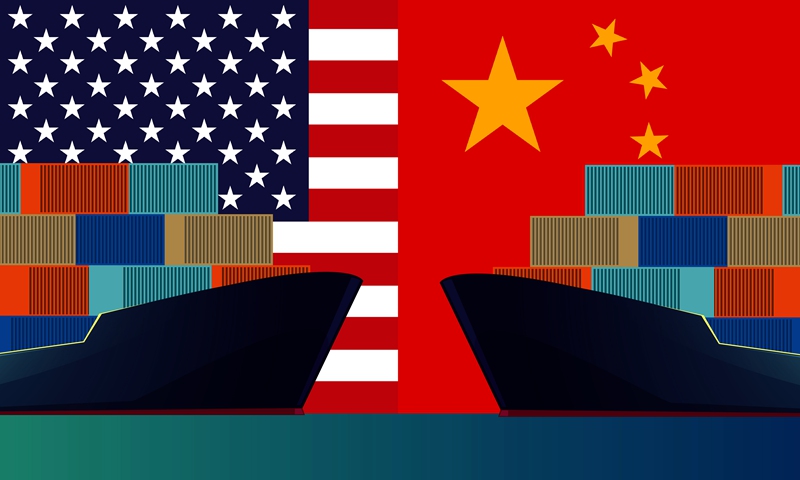
US crackdown on Chinese firms dims hopes for future trade engagement
Pompeo and 27 others sanctioned for lying, cheating, stealing....
Splashing $10m a year to split and subvert China, US govt-backed foundation unabashedly reveals funding scheme
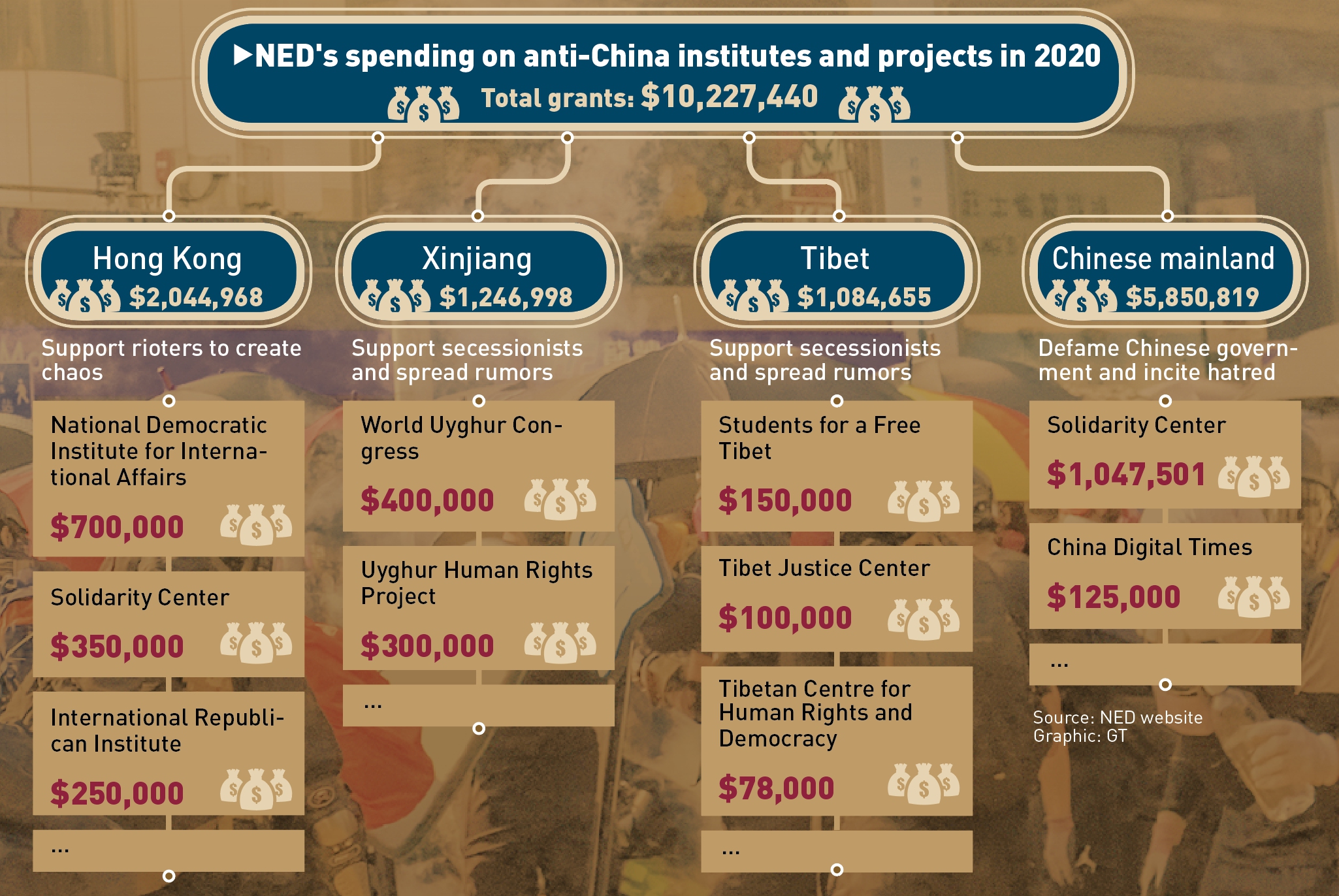
Inside America's Meddling Machine destabilizing the world order
The root of the matter: shame - shamefulness and shamelessness


